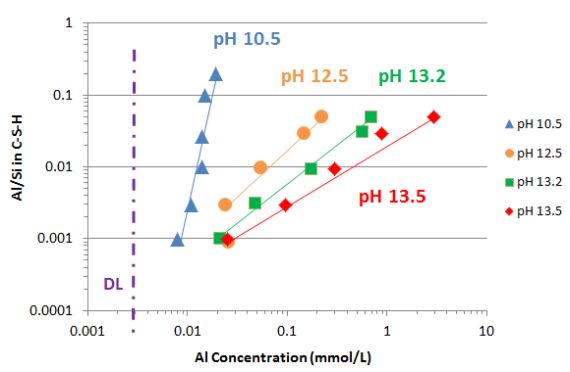Na, K and Al binding by C-S-H
Calcium silicate hydrate (C-S-H) is the main hydration product in Portland cement and blended cements and contributes significantly to the physical, chemical, and mechanical properties. Supplementary cementitious materials (SCMs) such as blast furnace slag or fly ash, calcined clays are used to partially replace Portland cement to reduce CO2 emissions. This leads to C-S-H with higher silicon and aluminium contents. Sodium (Na), potassium (K) and aluminium (Al) can be chemically and physically bound on C-S-H; the amount bound depends on the Ca/Si in C-S-H as well as on the pH value. The fraction of K, Na and Al bound in C-S-H influences the amount and kind of other hydrates, and thus the strength and durability of hydrated cements.
The present project:
- identifies different aluminum binding sites in C-S-H
- quantifies the uptake of Al as a function of Al concentration, Ca/Si ratio and pH
- equilibration time
- evaluates the stability of aqueous calcium, silicate and aluminate complexes; and
- develops thermodynamic models to describe the Na, K and Al-uptake in C-S-H phases

Project Period
February 2017 - April 2022
Additional information

Project Leader
Barbara Lothenbach
Team
Yiru Yan
Sonya Barzgar
-
Share
